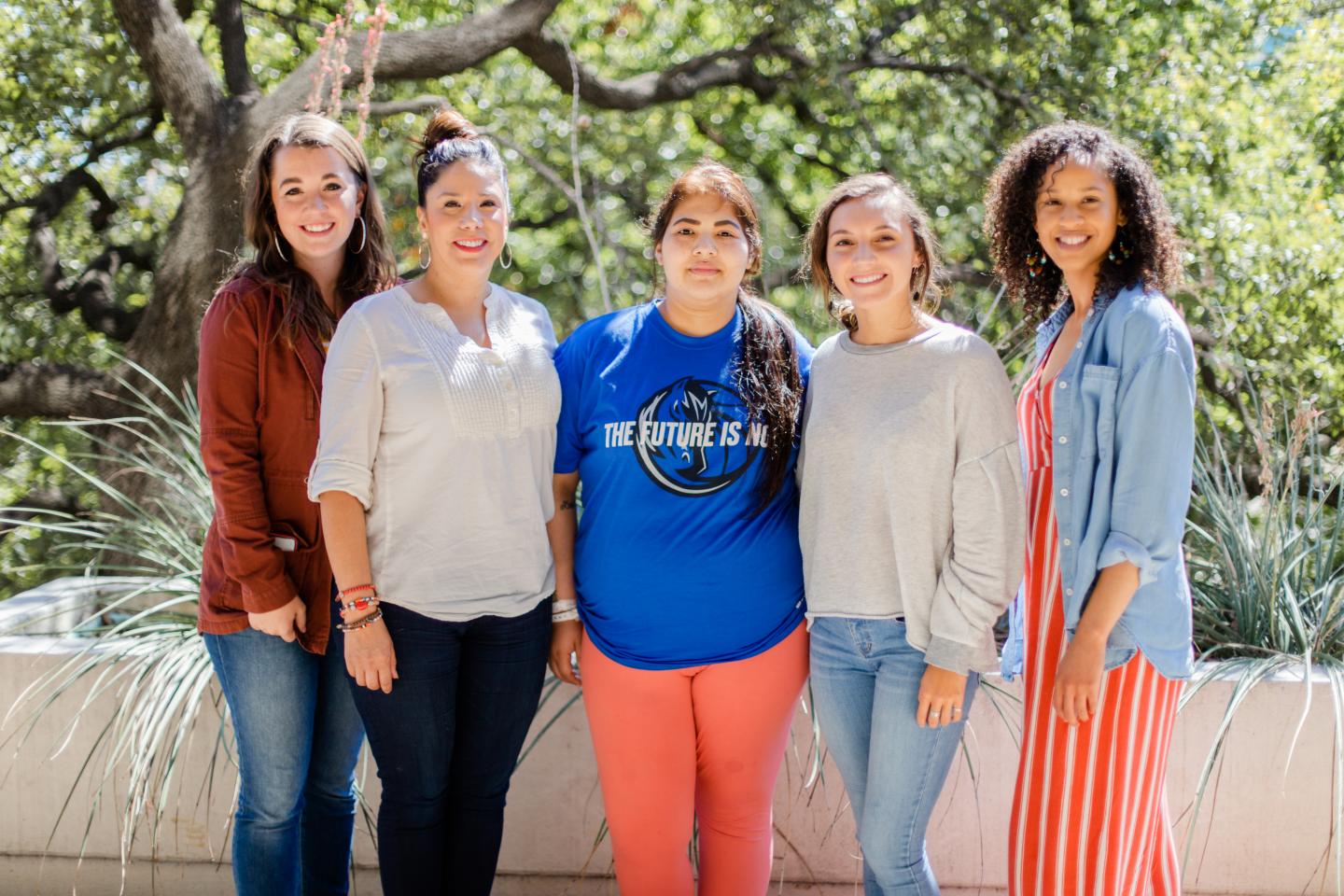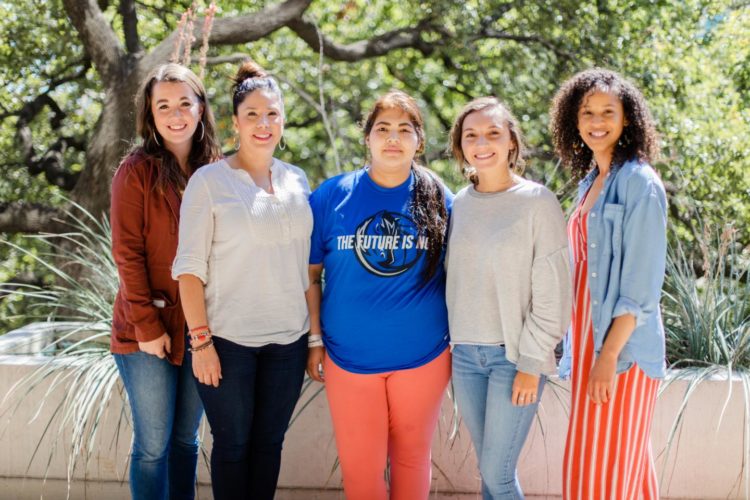$1.3 million federal grant helps UTA offer students training in addiction treatment

Credit: Elizabeth Couch, The University of Texas at Arlington
Nancy Ochoa was 15 years old the first time she used heroin with a group of friends. At 16, four months after the birth of her first child, her occasional drug use had turned into a “necessity.”
“I lost track of how often I was using,” Ochoa said. “One morning I woke up feeling sick. After shooting up again, I instantly felt better. That’s when I realized, ‘Oh man, what am I doing?'”
Ochoa, now a 23-year-old mother of two, is one of hundreds of patients in recovery after receiving help from social workers educated and trained at The University of Texas at Arlington and now working in different health organizations across North Texas.
UTA’s School of Social Work will be able to train more addiction recovery specialists under a new $1.3 million grant from the U.S. Health Resources and Services Administration (HRSA) as part of its Opioid Workforce Expansion Program.
The multi-institutional project, led by Debra Woody, senior associate dean in the School of Social Work and director of UTA’s Center for Addiction and Recovery Studies, will allow the University to award at least 81 advanced graduate social work students $10,000 scholarships to work in internships in different health organizations and federally qualified health centers. Over the past two years, the center has trained more than 200 students in prevention and intervention for substance use disorders.
Partners on the project include Parkland Hospital, JPS Health Network, Los Barrios Unidos Community Clinic, Urban Inter-Tribal Center of Texas, North Texas Area Community Health Centers, MHMR of Tarrant County and the Ellis County Coalition for Health Options.
“The grant will serve several purposes,” said Woody, the principal investigator on the project. “It will help us incorporate more information about opiates into our curriculum. It will allow us to work with agencies to provide services for opiate users in the community. And our students will gain hands-on practice in treating and supporting individuals with substance use disorders.”
According to the Centers for Disease Control and Prevention, an average of 130 Americans die each day from opioid overdoses. In 2017, more than 70,000 people died from drug overdoses. Of those deaths, almost 68% involved a prescription or illicit opioid.
“There is this a tremendous workforce shortage and a lack of behavioral health providers to meet the needs of this crisis,” said Katherine Sanchez, associate professor in the School of Social Work. “Through this grant we will train students to address and respond to the opioid epidemic through evidence-based practices for working with these populations.”
As part of the Opioid Workforce Expansion Program funded by the HRSA grant, Kurt Kleinschmidt, medical director of the Perinatal Intervention Program at Parkland Health & Hospital System and professor of emergency medicine and division chief of toxicology at UT Southwestern, will co-teach a class at UTA alongside Sanchez aimed at preparing social workers to properly treat patients like Ochoa.
“Social workers are at the front-lines of interacting with patients and their families and most have very limited background in addiction issues,” Kleinschmidt said. “We hope to create a larger group of social workers who understand addiction.”
Ochoa suffered through eight years of on-and-off opioid use and a series of life-threatening events, including overdoses, a sexual assault, a three-year prison sentence and a miscarriage. Eventually, she sought help.
“I found out I was pregnant for a third time, and I didn’t want my baby and me to be another statistic,” she said. “I knew I had to stop.”
Ochoa has been sober since May and gave birth to a baby girl in late September. She credits her progress to everyone at UTA’s Center for Addiction and Recovery Studies and Parkland involved in her recovery.
“Recovery will be a life-long journey, but I’m hopeful,” she said. “My scars and experiences are a reminder of where I’ve been, and where I don’t ever want to be again.”
###
This project is supported by the Health Resources and Services Administration (HRSA) of the U.S. Department of Health and Human Services (HHS) under grant number T98HP33478, Opioid Workforce Expansion Program-Professional, for $1,349,940. This information or content and conclusions are those of the author and should not be construed as the official position or policy of, nor should any endorsements be inferred by HRSA, HHS or the U.S. Government.
Media Contact
Elizabeth Couch
[email protected]
817-272-2748
Original Source
https:/





